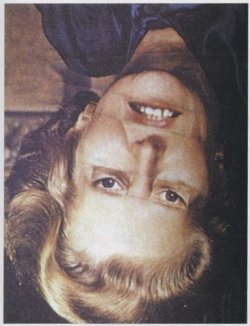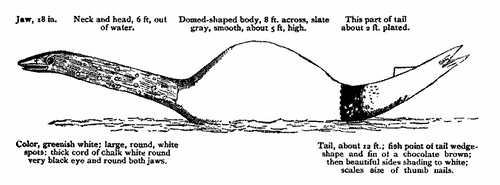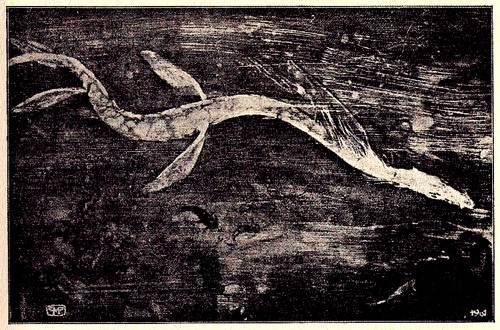The British merchant cruiser Hilary was patrolling the North Sea in 1917 when commander F.W. Dean was called to the bridge to witness a “living thing” on the starboard quarter.
“The head was about the shape of, but somewhat larger than that of, a cow,” Dean recalled three years later in Herbert Strang’s Annual, “though with no observable protrusions such as horns or ears, and was black, except for the front of the face, which could be clearly seen to have a strip of whitish flesh, very like a cow has, between its nostrils. As we passed, the head raised itself two or three times, apparently to get a good look at the ship.”
Dean estimated that the creature was 60 feet long and ordered his men to use it for target practice. The first two crews missed it, but the third hit “and produced at once a furious commotion, which reminded me more than anything else of a bather lying on his back in smooth water and kicking out with all his force to splash the water.” The creature disappeared.
All this was noted in the log, over the objections of a superstitious crewman who insisted it was bad luck to record such encounters. Two days later, Hilary was torpedoed and sank. “If you ask me ‘Am I superstitious about seeing a sea-serpent?'” Dean wrote, “I only reply, ‘Well, if ever I found myself again at sea in command of a ship, and anything of the sort was sighted, I should leave it alone and make no entry in the log!'”





